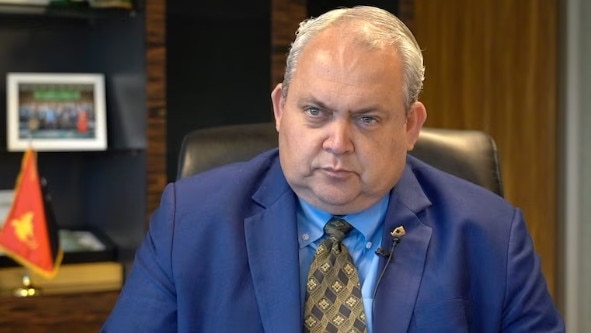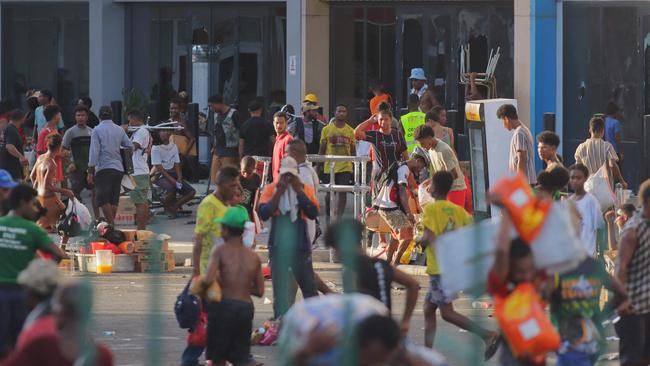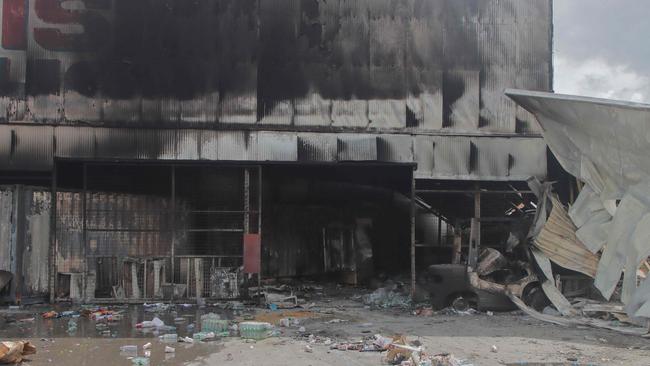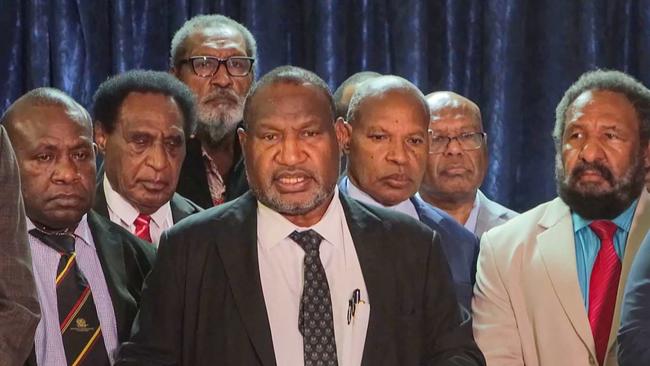PNG in secret early talks with China on security deal
Australia’s Pacific foreign policy is under significant new pressure with the nation’s closest ally Papua New Guinea revealing it was in secret early talks with China on a potential security deal.
National
Don't miss out on the headlines from National. Followed categories will be added to My News.
Australia’s Pacific foreign policy is under significant new pressure with the nation’s closest ally Papua New Guinea revealing it was in secret early talks with China on a potential security deal.
The stunning announcement by PNG Foreign Minister Justin Tkachenko comes just a day after Tuvalu also said it would no longer ratify a security pact with Australia and Nauru announced it had a new alliance with China.
The PNG confirmation now, will stun Australia’s foreign policy makers and the Albanese government which only last month signed a $200 million security deal with PNG to boost policing as part of a much touted “Stronger Pacific Family” policy.
Canberra and Beijing have been tussling for more than 12 months for greater influence in the Pacific where China has been courting support from Pacific leaders through financial aid packages.

Both the Albanese and former Morrison governments have long suspected the aid packages came with strings to allow Beijing to establish a military presence across the Pacific, a claim the Chinese have denied.
But up until now, PNG had publicly stood firm in its resolve to stick with Australia for its security needs, even though six months ago China had mooted the idea of being allowed to establish a fish canning factory and new harbour in an impoverished district of PNG. Beijing also had designs on an old World War II naval port the US had established but allowed to go to ruin until 2018 when Australia offered to take it over.


Beijing, PNG has long insisted, was a friend only for trade while Canberra and Washington was for security.
But Mr Tkachenko has now confirmed his government had been in talks on a potential security and policing deal with China which had approached PNG in September with an offer to assist its police force with training, equipment and surveillance technology.
Those talks were renewed just last week. The move was prompted by riots in Port Moresby over a strike over pay. After similar riots in the Solomon Islands, the government there signed a secret security pact with Beijing and rejected similar offers from Australia.

“We deal with China at this stage only at economic and trade level,” Mr Tkachenko said.
“They are one of our biggest trading partners, but they have offered to assist our policing and security on the internal security side.”
He added his government will assess whether a Chinese security deal trumps what Australia and the US offered.
“They have offered it to us, but we have not accepted it at this point in time,” he said of an undisclosed China deal.
China’s foreign ministry did not immediately respond to a request for comment.
At that time PNG signed on with Australia, Prime Minister James Marape publicly declared he had not held talks with China on security when he had visited Beijing. He had earlier struck a deal of defence cooperation with the US allowing the US military access to PNG ports and airports and said those deals were enough.
A Department of Foreign Affairs and Trade spokesperson said Australia remained PNG’s largest economic and security partner.
“We are working actively with PNG to meet its needs across the security sector,” they said of the China revelation.
“Pacific Islands Forum Leaders share the view that the security of the Pacific is the shared responsibility of the Forum family, of which Australia is part.”
Yesterday, Tuvalu’s yet to be ratified security treaty with Australia stalled with elections ousting the prime minister and the incoming MPs likely to form a government declaring the contentious treaty, that gave Australia broad powers to halt China’s push in that strategic location, will now be reviewed.
Foreign Minister Penny Wong has been contacted for comment.




